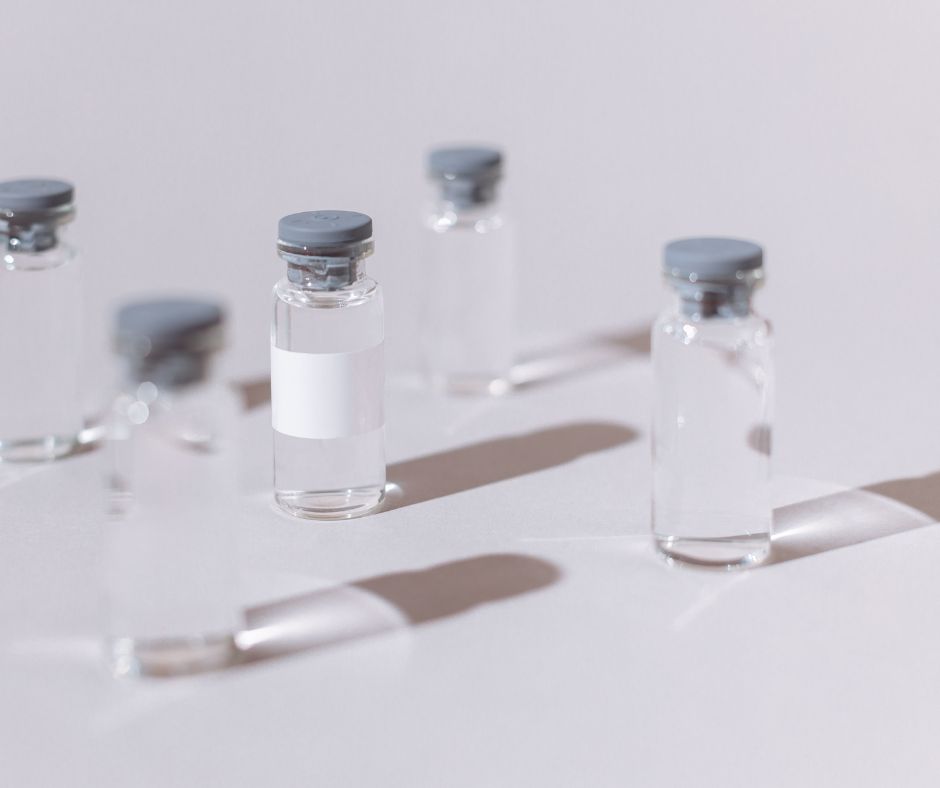Getting older allows us to reflect on the memories we’ve made and the wisdom we’ve acquired. While countless benefits come with aging, there are many drawbacks.
Dealing with constant itching during menopause is one of the most common problems women face as they age. In some cases, it can seem unbearable.
Learning more about the relationship between menopause and itching will help you overcome it. This guide will provide the key information you need to keep in mind when moving forward.
Why Does Menopausal Itching Occur?
Menopausal itching occurs due to a decrease in estrogen levels. This leads to thinner, drier, and less elastic skin. Estrogen reduction often affects the skin’s ability to retain moisture.
Decreased estrogen can disrupt the balance of the skin’s natural oils and pH levels. When this occurs, it further contributes to the itching sensation. Hormonal changes also affect the vaginal area, causing dryness and itching in that region.
Effective Menopause Relief Tips
Finding relief from menopausal itching requires specific steps. What works for someone else might not work for you, though.
It’s crucial to try out some of the most effective until you find what’s best for your needs. Let’s look closer at key solutions for menopausal itching below.
Increase Water Intake
Drinking plenty of water is essential to keep your skin hydrated and combat dryness. Proper hydration can alleviate itching caused by dry skin.
It also helps flush out toxins that may contribute to skin irritation. Proper hydration is a simple yet effective way to relieve menopausal itching.
Apply Regular Moisturizers
Using a high-quality moisturizer regularly can reduce itching. Look for products that are fragrance-free and formulated for sensitive skin. Otherwise, you might have an adverse reaction.
Ingredients like hyaluronic acid, glycerin, and ceramides are beneficial for locking in moisture. Apply moisturizer immediately after bathing to help trap moisture in your skin. Consistent use can soothe and prevent further irritation.
Opt for Gentle Skincare Products
Harsh soaps and skincare products can exacerbate dryness. Choose mild, hypoallergenic products designed for sensitive skin. Avoid ingredients like alcohol, sulfates, and synthetic fragrances.
Gentle cleansers and lotions can help maintain your skin’s natural barrier. Using the right products can make a noticeable difference in managing menopausal itching.
Consider Hormone Therapy
Hormone replacement therapy (HRT) can help alleviate menopausal symptoms, including itching. HRT works by replenishing the estrogen levels that drop during menopause.
This can also improve skin hydration and elasticity. Consult your healthcare provider to discuss if HRT is a suitable option for you.
They can guide you on the benefits and potential risks involved. In many situations, it’s ideal for menopause symptoms relief.
Adopt a Nutrient-Rich Diet
Eating a balanced diet rich in vitamins and minerals supports overall skin health. Foods high in omega-3 fatty acids can improve skin hydration. Vitamins A, C, and E are essential for skin repair and protection.
Incorporate a variety of fruits, vegetables, and healthy fats into your diet. Doing so benefits both your skin and overall health.
Supplements are great alternatives for those who can’t get the required nutrients through their diet. There are plenty of natural remedies for menopause itching available.
Incorporate Regular Physical Activity
Exercise promotes good circulation, which is vital for skin health. Regular physical activity helps deliver nutrients to the skin and removes toxins. Exercise can also reduce stress, which can exacerbate itching.
Aim for at least 30 minutes of moderate activity most days of the week. Activities like walking, swimming, or yoga can be beneficial. These are low-impact and great for those with joint pain.
Practice Stress Reduction
Stress can worsen menopausal symptoms, including itching. Meditation and deep breathing exercises can help manage stress levels. Reducing stress will also help balance hormone levels.
Prioritizing mental health is just as important as physical health. Make time each day to decompress and center yourself.
Consult a Healthcare Provider
If menopausal itching is severe or persistent, it’s essential to seek professional advice. A healthcare provider can offer tailored treatments and recommend suitable therapies.
They may suggest topical treatments, prescription medications, or other interventions. Don’t hesitate to seek help to improve your quality of life. The longer you wait, the more difficult the situation becomes.
Side Effects of HRT
While HRT is often a valid option, it’s crucial to understand the potential side effects before exploring it. This will also help determine candidacy. In general, you should be prepared for the following complications.
Increased Risk of Blood Clots
One of the more serious potential side effects of HRT is an increased risk of blood clots. This risk is particularly significant for women who smoke or have a history of clotting disorders.
The last thing you want is to cause additional issues through HRT. In many cases, though, patients won’t have to worry about this.
Cardiovascular Concerns
HRT may impact cardiovascular health. Some patients experience an increased risk of heart disease and stroke.
Women with pre-existing heart conditions should keep this in mind. Regular check-ups and monitoring can help manage these issues. Patients predisposed to heart issues should consider alternatives.
Breast Cancer Risk
This risk varies depending on the type and duration of HRT. Discussing your family history and personal risk factors with a healthcare provider is crucial. They’ll determine whether it’s a suitable form of treatment.
Mood Changes
HRT can sometimes affect mood, causing symptoms such as depression, anxiety, or mood swings. These changes can impact your overall quality of life. If you experience significant mood alterations, tell your doctor right away.
When to Seek Medical Attention
In most situations, menopausal itching is nothing more than a nuisance. There are certain scenarios, though, where you’ll need to get in touch with a doctor. We’ll look at these in more detail so you can make the right decision.
Severe or Persistent Itching
If your itching is severe or doesn’t improve, consult a healthcare provider. Persistent itching can be a sign of an underlying issue that needs medical attention.
Early intervention can prevent further complications and provide much-needed relief. It can also handle problems that would’ve evolved into something greater. Keep this in mind when moving forward.
Signs of Infection
Redness, swelling, warmth, or pus in the itchy area may indicate an infection. Seek medical help if you notice any of these symptoms, as they require prompt treatment.
Infections can spread and cause more severe health problems if left untreated. This is especially true in elderly individuals.
Impact on Daily Activities
Your itching might interfere with your sleep, work, or daily activities. Chronic discomfort can significantly affect your quality of life. Addressing the issue early will help you maintain your daily routine.
Unusual Skin Changes
This is one of the most important symptoms to keep an eye out for. You may notice changes like new rashes, bumps, or discoloration along with itching. A doctor should evaluate these symptoms.
Unusual skin changes can signal various health concerns. A healthcare provider can diagnose and treat underlying problems.
Current Treatments Are Ineffective
Over-the-counter treatments and home remedies don’t always provide relief. A healthcare provider can recommend stronger or more appropriate medications.
Professional guidance ensures you receive the most effective treatment. This can help you manage symptoms and improve your comfort.
Finding the Right Doctor
Working with the wrong professional will only lead to additional complications. Keeping an eye out for certain criteria will streamline your search. Here’s what to consider when moving forward.
Check Credentials and Experience
Look for a doctor with specialized training in gynecology or dermatology. Verify their medical credentials and board certifications. Experience in treating vaginal itching specifically is essential for effective care.
Seek Recommendations
Ask friends, family, or other healthcare providers for recommendations. Personal experiences can provide valuable insights into a doctor’s approach and effectiveness. Online reviews can also offer additional perspectives.
However, it’s crucial to look for fake reviews while searching. These can be positive or negative, and they’re meant to mislead potential patients. Ignore them so you can maintain an accurate perspective.
Evaluate Communication Style
A doctor who listens and communicates clearly is crucial. Ensure they take your concerns seriously and explain treatment options. Comfort and trust in your doctor are key to successful treatment.
Consider Accessibility
Choose a doctor whose office is conveniently located and has flexible hours. Accessibility can impact your ability to attend appointments regularly.
Also, consider whether they accept your insurance. This can significantly reduce the amount you pay for your treatment.
Assess Treatment Approach
Different doctors may have varying approaches to treating vaginal itching. Inquire about their preferred methods and treatments. Ensure their approach aligns with your preferences and needs for personalized care.
Understand the Relationship Between Menopause and Itching
Understanding menopause and itching will make it easier to accommodate this condition. From here, you’ll have no trouble getting your life back on track. Just be sure to find the right medical provider.
Evolve Telemed offers personalized bioidentical hormone and peptide therapies designed to enhance your quality of life. We focus on treating hair loss, weight management, sexual wellness, and cognitive function.
Our professional team also delivers concierge-level telemedicine care. You’ll learn more about how we can help when you schedule a consultation today.






